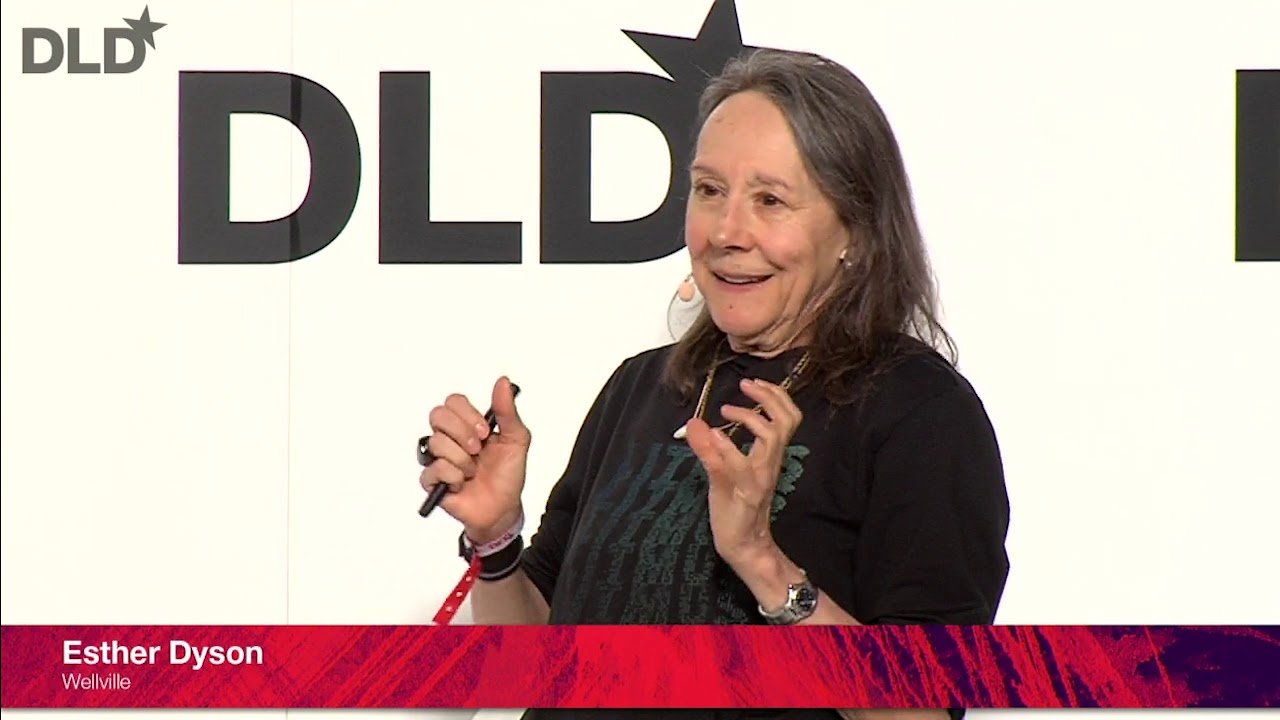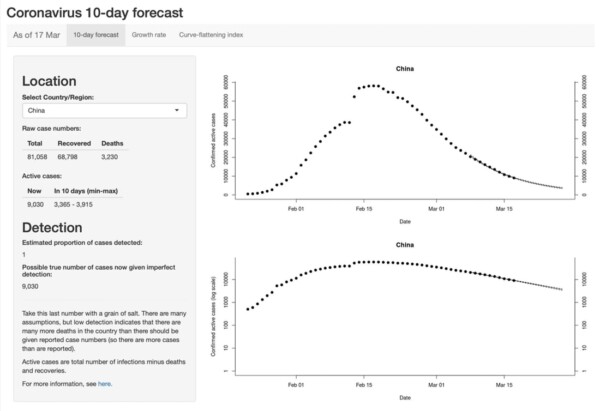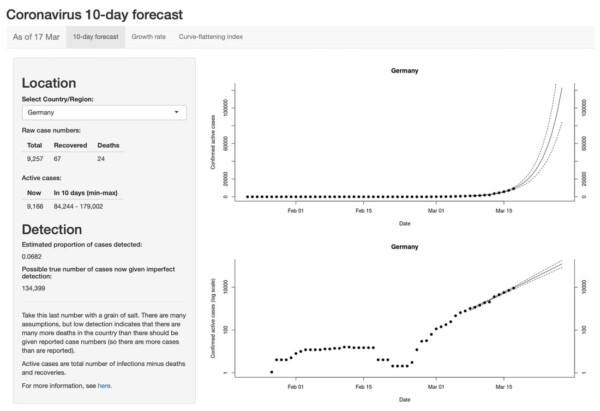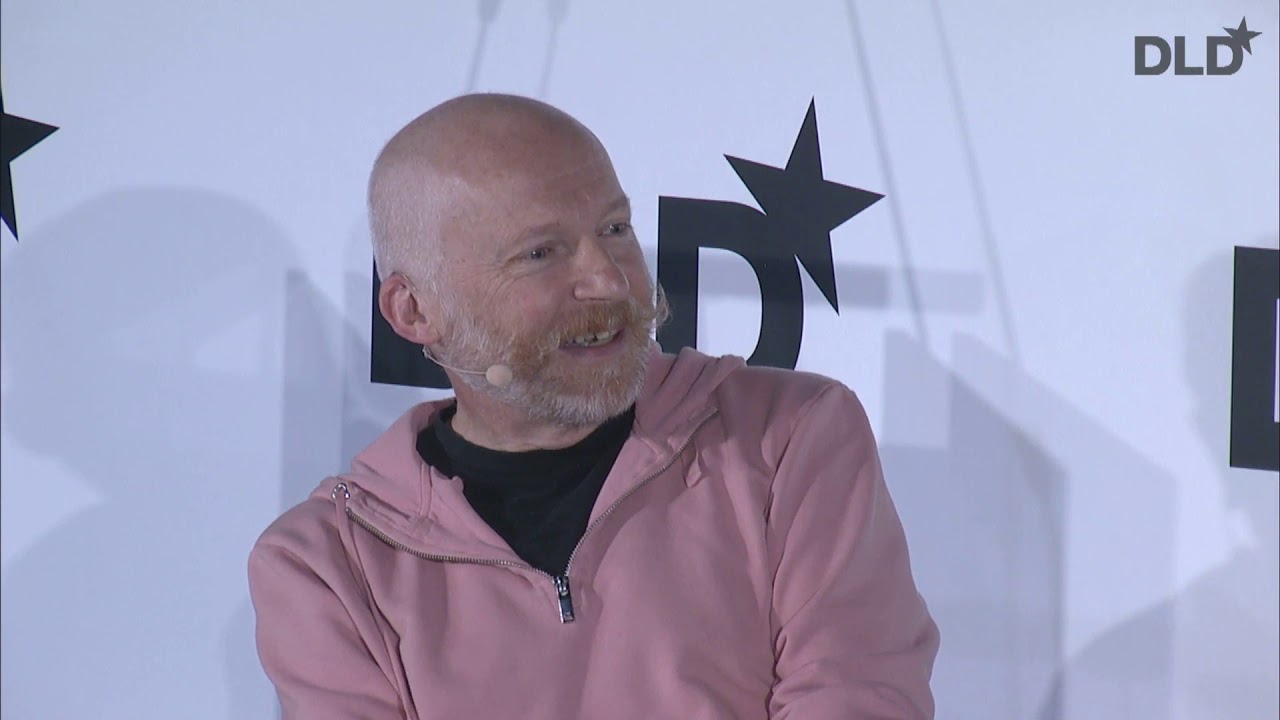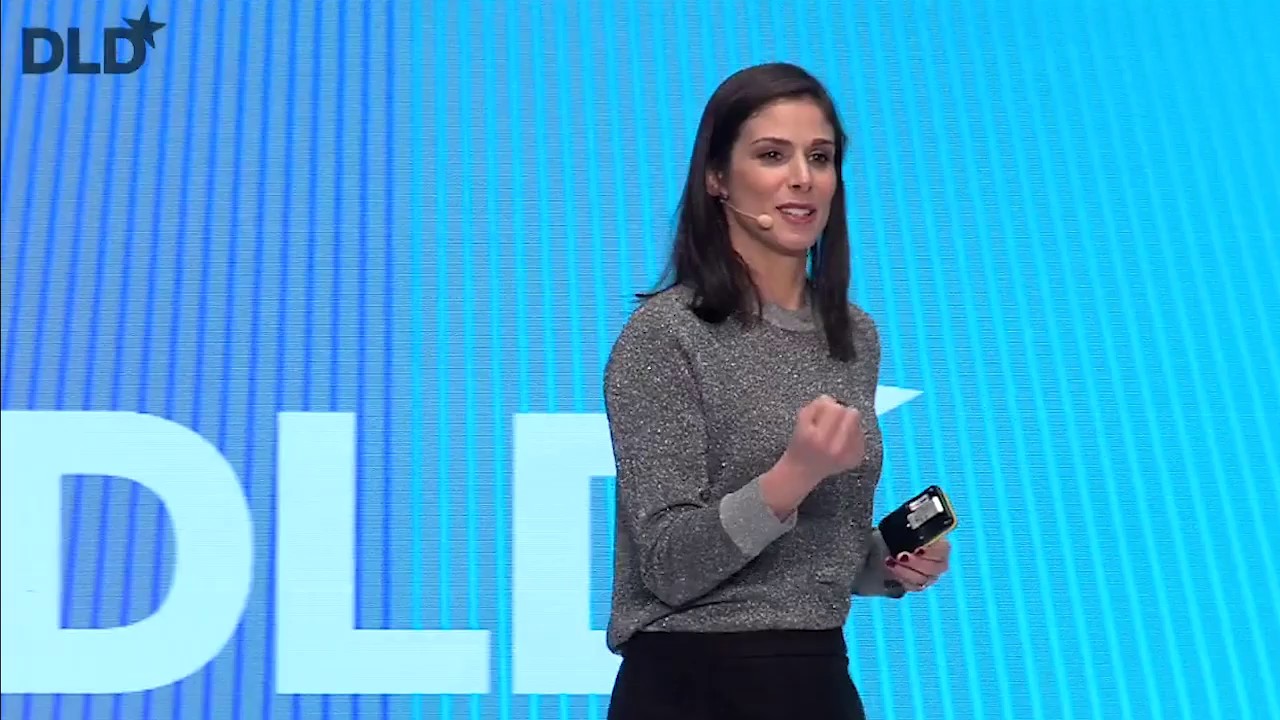
Coronavirus: Managing A Crisis That Changes Everything
A tiny organism has brought daily life to a standstill, all over the world. Since the coronavirus named SARS-CoV-2 was first discovered in November 2019, it has spread around the globe at a dramatic pace, threatening the lives of millions of people.
DLD sits at the intersection of science, business, culture and politics. Many aspects of this crisis are related to topics, experts and institutions in our community. So we hope that we can bring a unique perspective to questions you might have.
Our goal is to highlight and amplify, rather than add more noise to the echo chamber, because it’s easy to feel like you’re drowning in a sea of information about Covid-19 – or even misinformation, given the many rumors and “fake news” that are swirling around on social media. (More on that here.)
What follows below is a handpicked list of resources, articles and videos. We’re confident that sharing knowledge and insights can inspire new solutions to fight this viral threat to human health as well as the global economy.
What Are You Adding?
Our motto for DLD Munich in January feels more relevant than ever. Actions matter, and we cannot just point to the government to manage the coronavirus crisis. Ultimately, nothing may be more important than what we do as individuals – each of us taking responsibility for the common good.
This goes beyond regularly washing your hands and cleaning your smartphone. If possible, it’s best to stay home because the best way to stop the virus from spreading is to keep a physical distance from other people – right now, before things get worse. This risk modeling study by scientists at the Imperial College in London shows how quickly the situation could spiral out of control, overloading health systems to the point of breakdown.

This chart from the Imperial College study shows that “case isolation, household quarantine and general social distancing” are likely to be the most effective way of manging the pandemic. Details here.
If you – or somebody you know – needs further convincing, here are a couple of interactive tools that illustrate how quickly numbers rise when you’re looking at exponential growth.

In Social Distance: The Game, you are in charge of keeping the population healthy. When do you reduce social contact, and by how much?
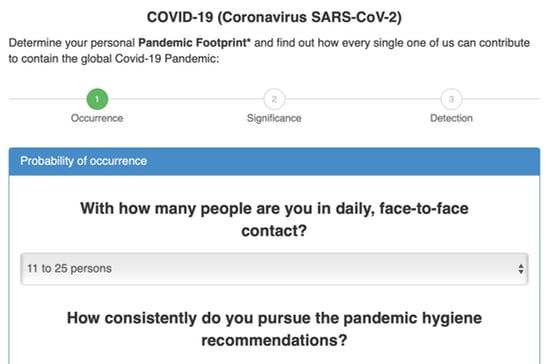
The Pandemic Footprint Index shows how much of a risk you pose to others, depending on where you’ve traveled and how strictly you keep a distance (or not).
You may also want to take a look at social networks that connect neighbors. Digitally, without spreading the virus. Both Nextdoor.com and Germany’s Nebenan.de offer tips on how people can support each other, for example by helping elderly neighbors with their shopping. (Just remember to physically keep a distance even when you’re virtually lending a hand.)
Nebenan.de even launched a special website, wirgegencorona.com. The company’s founder, Christian Vollmann, spoke at DLD Summer 2016 about social entrepreneurship and how technology can support society.
Why Now?
Many experts had predicted a pandemic of this kind for years. That’s because a growing human population also means growing exposure to viruses that are already out there in the wild. “A large pool of viruses are circulating and we don’t become familiar with them until we see a spillover event and people getting ill”, says Dennis Carroll, a leading U.S. scientist who specializes in researching the transmissions of diseases from animals to humans.
In a wide-ranging, highly recommended interview with the science magazine Nautilus, Carroll explains why he fears that the likelihood of pandemics is increasing and why both governments and societies find it hard to respond. If you want to take a deep dive into the subject, take a look at scientific discussions and studies around Covid-19 available on the science portal ResearchGate.
“Whatever future threats we’re going to face already exist, they are currently circulating in wildlife. Think of it as viral dark matter.”
Dennis Carroll
How Can Technology Help?
Smartphone data quickly emerged as a tool to see where infected people had been, and to track who they had been in contact with. This raises privacy concerns, of course, but more and more countries are using location data to monitor the coronavirus outbreak. Israel just passed emergency measures to that effect, the U.S. government is evaluating different options, according to news reports. In Germany, anonymized mobile phone data help virologists at Robert Koch Institute to map the outbreak and model risk scenarios. A number of European telecoms providers have agreed to share anomymized location data with the EU Commission “to coordinate measures tracking the spread of the virus”, Reuters reports.
Artificial intelligence could, in theory, speed up the search for a coronavirus vaccine. The hope is that machine-learning algorithms may spot patterns that are hidden in huge amounts of data, such as almost 30,000 research papers that have already been written, as this WIRED article explains. But there are also many obstacles, and if the “hype outstrips the reality” the whole field of AI could suffer, the MIT Technology Review warns. “AI will not save us from the coronavirus – certainly not this time”, the magazine writes. “But there’s every chance it will play a bigger role in future epidemics.”
Update: “AI Uncovers a Potential Treatment for Covid-19 Patients”, WIRED reports. Researchers at BenevolentAI used data analytics to identify a rheumatoid arthritis drug called Baricitinib “that might dampen some of the most severe effects of the new virus”, according to the article. The London-based startup is now working with U.S. health authorities on a large-scale clinical trial, with the intention of extending the trial to Europe and Asia soon after.
Video: At DLD Munich 2019, BenevolentAI CEO Joanna Shields explained how artificial intelligence could speed up the search for better drugs. Watch her talk right here.
Human ingenuity may be our best bet in the short run. In northern Italy, engineers at two local companies, Isinnova and Lonati, used 3D printing to produce spare parts for breathing machines at a hospital in Brescia. With 250 patients in intensive care, the hospital urgently needed valves for its respirators, according to the BBC. When the regular supplier could not deliver the valves in time, the 3D printing experts came to the rescue.
Update: In an article for the New York Times, two Isinnova engineers describe how they were able to quickly produce the valves and what they’re planning next. Their conclusion: “In a moment of crisis, and in a moment when commerce globally is shutting down, there are still many do-it-yourself ways of helping the people around you.”

Solutions, challenges, stakeholders: Whether you’re looking for tools to manage the crisis or ways to help our yourself, this Airtable is one of the best collections of Covid-19 resources you’ll likely find on the Web.
Events, Work and Teaching: What’s Going On?
Check out Is It Canceled Yet to see the status of select conferences and events in the face of the coronavirus outbreak. There’s a healthy dose of humor, in case some of the answers make you want to cry. Another source of information is the website Staying Home Club, which tracks events but also lists companies that require employees to work from home, and universities that have switched to remote teaching.
How Bad Will It Get?
Nobody can reliably predict the outcome of this pandemic, of course. There are too many variables and unknowns. That said, Australian scientist Ben Phillips of the University of Melbourne’s School of Biosciences has developed an interactive tool that models possible developments for various countries based on current patient data. “The app is designed to give people a sense of how fast this epidemic is progressing”, Phillips writes in a blog post outlining his project, “as well as one of the key uncertainties; the true number of cases.” Despite its inherent limitations this is a fascinating tool which helps to visualize what can otherwise be hard to grasp.
Forecasts for China and Germany, as of March 17, 2020, show two very different developments for the rate of infection in each country. For updates please visit Ben Phillips’ interactive website.
How To Deal With the Lockdown?
It can be hard to stay at home all day, especially when you don’t want to. Too many people, too little room – and tensions quickly start to flare. “The coronavirus may turn out to be the ultimate stress test for couples”, the New York Times observed. The author turned to couples therapist Esther Perel for advice.
She pointed out how important it is that partners are aware of their differences in responding to a crisis like the coronavirus pandemic. “If you polarize and you think that there’s only one way to do things, it’s fake certainty”, Perel told the New York Times. “The whole point is that you’re discovering it along the way.”
Esther Perel is a regular DLD speaker and most recently explained the importance of emotional intelligence in the workplace at DLD Munich 2020. You can also watch her DLD New York talk about the Future of Love right here.
Watch Esther Perel’s DLD20 talk about Relational Intelligence.
In 2018, Esther Perel joined us in New York to speak about the Future of Love.
Is Remote Work the Future?
For the time being it certainly seems that way. And the coronavirus outbreak may well put technology to the test: Some question whether the infrastructure can handle all the traffic (and yes, that includes gaming, streaming and other forms of online entertainment). Others are already fed up with clunky software and sitting through seemingly endless marathons of video conferencing. Psychologists, meanwhile, worry that physical separation from coworkers could lead to a loss of creativity and productivity – because many office encounters that involve seemingly idle chit-chat actually help teams work better together, inspiring trust as well as sparking new ideas, as this article in The Atlantic explains.
Concerts Cancelled, Theaters Closed: Now What?
The world of culture has been hit hard by the policy of social distancing. But artists, theaters and movie studios are responding by moving events online, giving fans a chance to enjoy virtually what is otherwise out of reach for now. Here’s a brief overview:
Theater lovers can turn to a number of websites that stream live performances or show recordings from various theater houses. You’ll find a comprehensive list of services in this article by The Observer.
Berlin’s clubbing scene has a new online home at UnitedWeStream, a website providing round-the-clock dance tunes mixed by local DJs.
Hollywood is responding to the crisis by releasing some films online much earlier than planned. Universal Pictures is making The Hunt, Emma and The Invisible Man available for digital rental in the U.S., with other studios expected to follow. “A short term fix, or a sign of change?”, asks The Los Angeles Times.
Fans of classical music can find a number of concerts recorded in Italy by searching for the hashtag #Lamusicanonsiferma. Meaning: The music doesn’t stop, even if the concert halls have to remain closed for audiences. Participants include Milan’s La Verdi orchestra and the Teatro La Fenice in Venice.
You can also visit Berlin’s famous Berliner Philharmoniker orchestra on your computer and enjoy free access to their Digital Concert Hall if you register before March 31. Meanwhile, New York’s Metropolitan Opera has launched “Nightly Met Opera Streams”.
Many museums have been eager to connect with visitors online for years – and now the coronavirus pandemic makes it a necessity. Google has compiled an extensive overview of online exhibits. Similarly, art galleries are trying to cope with the unprecedented challenge of being cut off from visitors. Some, like London’s Serpentine Galleries (a longtime friend of DLD), are planning special broadcasts and podcasts to keep in touch with their fans.
At DLD19, Loic Tallon described how museum’s like New York’s Metropolitan Museum of Art can use technology to connect with a global audience in new ways.
Merging art and science can lead to new perspectives: Watch this conversation between Oxford mathematician Marcus du Sautoy and Mexican artist Eduardo Terrazas, moderated by Hans Ulrich Obrist, Artistic Director of the Serpentine Galleries.
What About the Economy?
Many observers fear that the virus outbreak will end up causing more damage to businesses than the financial crisis of 2008. McKinsey has released a series of executive briefings modeling different scenarios concerning Covid-19 implications for business. One is a “delayed recovery” which assumes that the outbreak can be brought under control by the summer. The alternative could be a “prolonged contraction” extending into 2021. Both scenarios assume layoffs and bankruptcies amid recessions in most major economies. To prepare, McKinsey recommends that companies create a “crisis nerve center” to help decision-makers on all management levels “quickly assess the situation and consider and choose plans of action, and execute those plans”.

Gloomy outlook: In their March 16, 2020, briefing note (PDF), McKinsey analysts foresee great damage to the world economy due to the Covid-19 pandemic.
Can We Trust What We Read?
Unfortunately the coronavirus outbreak has also created another “fake news” epidemic. There are so many baseless rumors fighting for attention alongside factual reports that it’s easy to feel overwhelmed.
Thankfully many reputable news organizations have created dedicated pages collecting their coronavirus coverage, and some have decided to make their coronavirus coverage free of charge, even if they normally employ a paywall. Examples of trustworthy news sources include the New York Times, The Economist, Bloomberg, The Atlantic, The Guardian, The New Yorker, The Conversation, Statnews, Science, Nature, The Lancet and the World Health Organization’s information page on Covid-19.
In general, be wary of anything you hear, read or see on social media only – and please think twice (or three times) before you forward it to friends or followers. If in doubt you can easily double-check by visiting Snopes.com, a website dedicated to fighting misinformation. Snopes has created a coronavirus fact-checking page with sub-sections that address “conspiracy theories and ‘predictions’”, “memes and misinformation”, and many other rumors.
While Facebook, YouTube, Twitter and others have clearly undertaken efforts to fight misinformation on their platforms, abuse is unfortunately becoming easier, not harder. This is partly because it doesn’t take much effort anymore to make manipulated photos and videos look so real that they can fool any casual observer.
AI researchers are working hard to make algorithms smart enough to discovers such “deep fakes”. We encourage you to watch the DLD20 presentation by Deeptrace founder Giorgio Patrini, below. But until machines can reliably identify malicious misinformation it will be up to us humans to use our brains and not believe everything we hear or see.
Because too much exposure to disinformation erodes trust – and trust is one of the most precious things we have, among individuals and in society in general, as Rachel Botsman compellingly showed in her DLD19 talk.
At DLD20, Giorgio Patrini explained how artificial intelligence can help to identify misinformation.
Innovation depends on “leaps of trust”, Oxford University lecturer Rachel Botsman explained at DLD19. After watching her talk be sure to read our interview with her.
When Will Life Be Normal Again?
There’s no telling how long the pandemic will last. The good news is that some drugs are already being tested. In Germany, CureVac and BioNTech have made headlines for their efforts to quickly develop a coronavirus vaccine. A Japanese flu medication has shown promising results, for example.
Several studies (e.g. from China and France) point to chloroquine – historically used to treat malaria – and the closely related hydroxychloroquine as potential drugs to treat Covid-19. At a Paris hospital, however, doctors were disappointed by the efficacy of the drug, which is also known to have severe side-effects.
Update: The WHO has suspended testing hydroxycholoroquine as a Covid-19 treatment due to safety concerns.
The Guardian has a general overview of prospective Covid-19 treatments, Statnews takes a look at drugs and vaccines in development by pharmaceutical companies around the world.
Results from the first medical trials are inconclusive, showing that “there’s no silver bullet for coronavirus infection yet”, according to the MIT Technology Review.
It seems fair to say that even in a best-case scenario it will take months – likely until the end of the year or even 2021 – before drugs are ready for mass-market use.
So for now, the best strategy appears to be keeping a physical distance to other people. Because the virus needs a host – us. And if we don’t give it a chance to travel, doctors will have a much better chance of healing patients and stopping the disease.
In that spirit, stay healthy, stay home, and be creative in supporting your community!
Note: We’re no longer updating this article. Please check our Twitter feed for related news.

